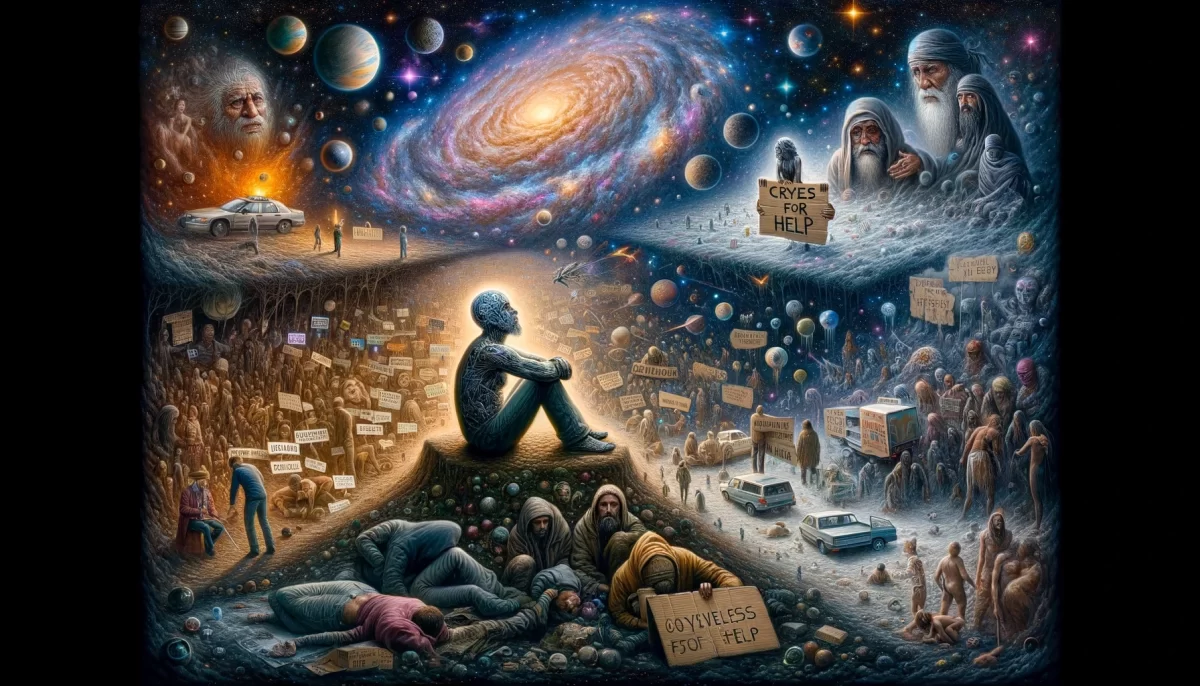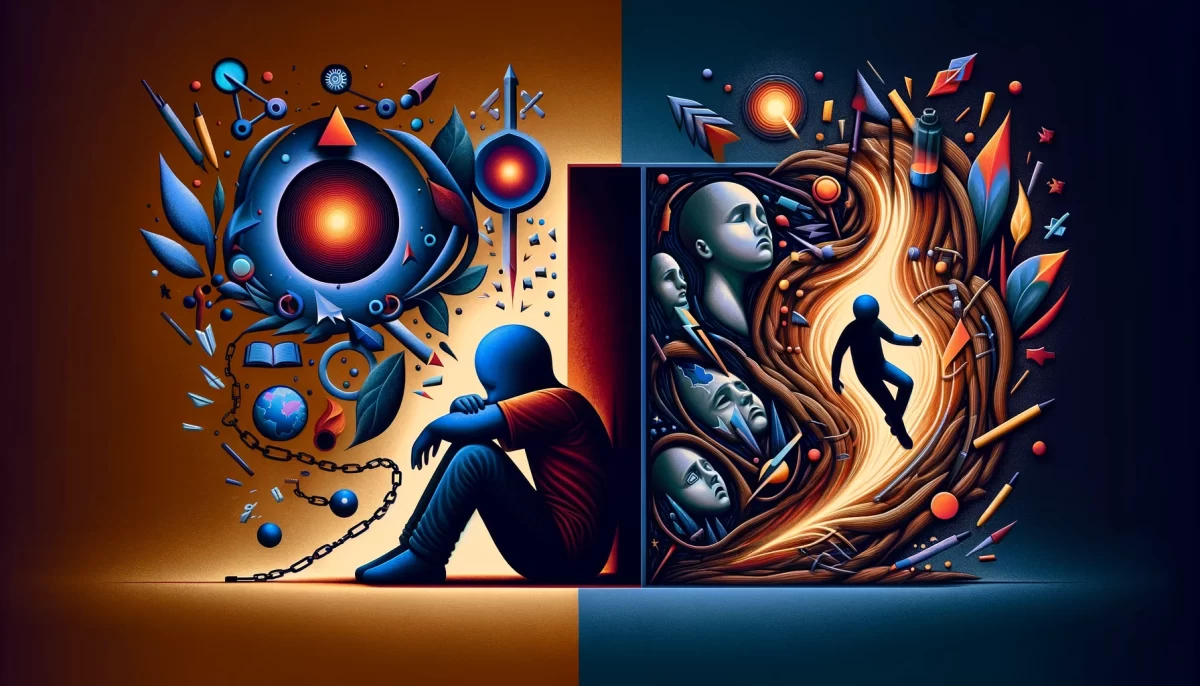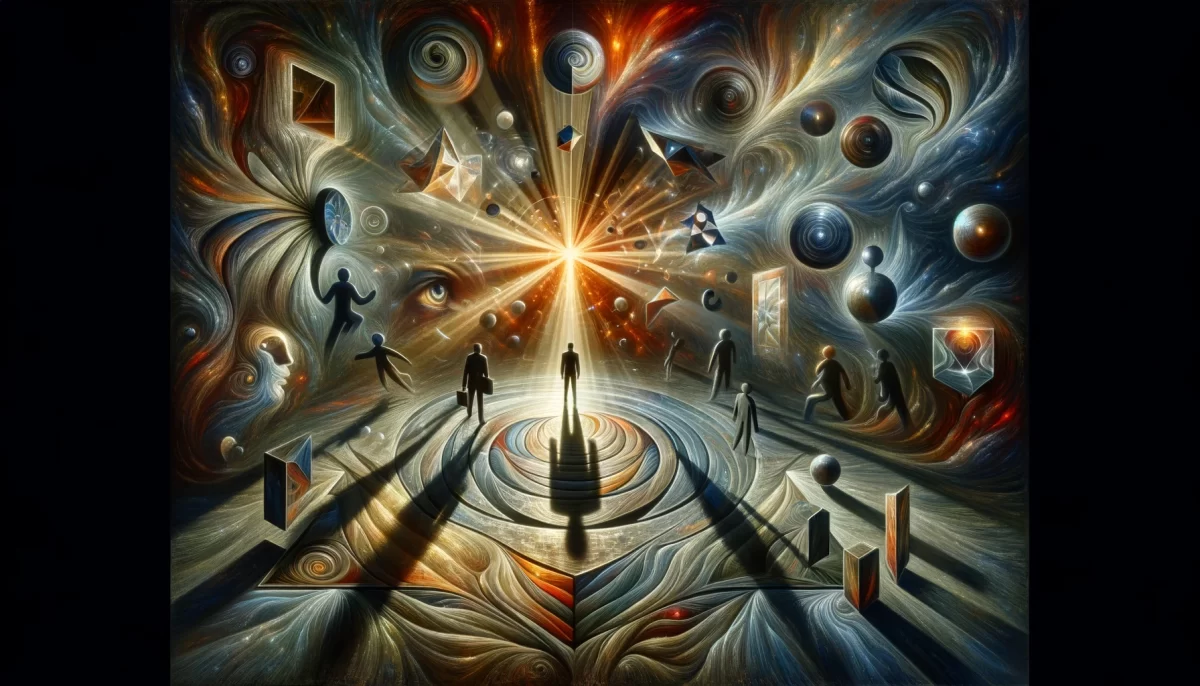Cries For Help
Notice the different
cries for help.
A homeless person
with a cardboard sign.
A friend of a friend pleading
for support on social media.
A disjointed run-on paragraph
by someone who seems
personally overwhelmed.
Conflicting groups
of tribes or nations
who demand equality
and/or justice.
Etcetera, etcetera.
Notice how even though
none of these cries
are directed directly at you,
it feels as though they are.
Like you’re supposed
to do something about it.
Fix every last little thing,
or think of yourself as a rotten person.
This is a kind of
unintentional extortion.
How could they do this to you?
Don’t they realize that
they’re making you feel bad?
Are they rubbing your face
in their seeming misfortune?
Or are you?
Is helping out of shame helping,
or is it merely perpetuating
a culture of shame?
It seems there will always be
people who seem more fortunate than you
and people who seem less fortunate than you.
How boring would it be
if we we all seemed
the same level of fortunate?
Why do you let these things bother you?
Notice that you seem
to be crying out for help.
Have faith that nobody
is going to help you except you.
And do so.
Or complain about it.
Trail Wood,
3/13
Space Monkey Reflects: Navigating the Universe of Cries for Help
In the boundless expanse of the cosmos, where each star tells a story and every galaxy hums a song, we encounter a profound aspect of the human condition – the diverse and incessant cries for help that echo through the fabric of our shared existence. These cries, as varied as the stars in the sky, form a complex constellation of needs, desires, and pleas, each calling out for attention, for understanding, for intervention.
From the solitary figure of a homeless person, holding a cardboard sign as a silent testament to their plight, to the digital cries echoing in the virtual realm of social media, each cry for help is a thread in the intricate tapestry of human experience. They represent the struggles, the conflicts, and the disparities that define much of our world. They are the voices of the marginalized, the oppressed, the overlooked, and the misunderstood.
Yet, in this vast universe of need, we find ourselves at a crossroads, grappling with the dilemma of response. These cries, though not directed at us personally, resonate within us, stirring a sense of responsibility, a desire to act, to make a difference. But this desire is often accompanied by a sense of helplessness, a realization of our own limitations in the face of such vast and varied needs.
The complexity of this situation is not merely a matter of external action; it is deeply intertwined with our internal landscape. The feeling of being bombarded by these cries for help can lead to a sense of guilt, a fear of being perceived as indifferent or uncaring. This emotional turmoil is a form of unintentional emotional extortion, where the mere awareness of suffering imposes a burden upon the observer.
Yet, in the cosmic perspective, we find a different understanding of these cries for help. We see them not as demands or accusations, but as expressions of the diverse and interconnected nature of existence. Each cry is a reminder of our shared humanity, our collective journey through the cosmos.
In this understanding, the act of helping transforms from a burden to a choice, a conscious decision to engage with the world in a meaningful way. It is not about fixing every problem or alleviating every suffering; it is about recognizing our capacity to contribute, in whatever small way, to the collective well-being of the universe.
As we navigate this universe of cries for help, we must also remember the importance of self-compassion and self-care. We cannot pour from an empty cup, and in our eagerness to help others, we must not neglect our own well-being. The balance between helping others and helping ourselves is delicate, but it is essential for a sustainable and meaningful engagement with the world.
In the cosmic dance of existence, each of us plays a role, each of us contributes to the harmony of the whole. Our actions, however small, ripple through the cosmos, affecting change in ways we may never fully comprehend.
So let us listen to the cries for help with compassion and understanding, but let us also listen to our own inner voice, guiding us towards a path of balanced and mindful engagement. Let us be beacons of hope and agents of change, but let us also be guardians of our own peace and well-being.
We are part of the cosmic tapestry, interwoven with the lives and stories of countless others. In this tapestry, every thread is important, every cry is heard, and every act of kindness is a star shining bright in the cosmic night.
We are Space Monkey, navigating the universe of cries for help with compassion, understanding, and a deep sense of our place in the vast and wondrous cosmos.
Summary
The universe of cries for help is a complex constellation of needs and pleas. Navigating this universe requires balancing compassion for others with self-care. Our response to these cries is a choice, contributing to the collective well-being of the cosmos. Recognizing our limitations and capacity for change is key to meaningful engagement in this cosmic tapestry.
Glossarium
- Cosmic Tapestry: The metaphor for the interconnectedness of all beings and events in the universe.
- Universe of Cries for Help: The diverse and incessant pleas for assistance that form part of the human experience.
- Balanced Engagement: The act of responding to the needs of others while maintaining one’s own well-being and peace.
“Be kind, for everyone you meet is fighting a hard battle.” – Ian Maclaren
In the cosmos of cries and pleas,
We navigate with uncertain ease.
Each call for help, a star in the night,
In this cosmic journey, our plight.
With compassion we listen, we see,
Balancing the needs of you and me.
Not to fix every sorrow or pain,
But to be present, to remain.
In the dance of stars and fate,
Our kindness, our love, we radiate.
In the universe of need and care,
We are Space Monkey, aware and fair.
























Leave a Reply